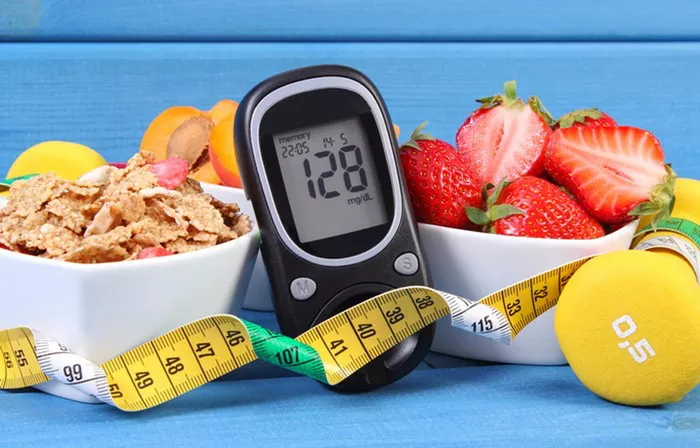Hyperglycemia, often referred to as high blood sugar, is a common concern for individuals living with diabetes. It occurs when there is an excess of glucose circulating in the bloodstream, typically due to insufficient insulin production or utilization. Left unmanaged, hyperglycemia can lead to serious complications such as diabetic ketoacidosis (DKA) or long-term damage to organs and tissues. Recognizing the signs and symptoms of hyperglycemia is crucial for early intervention and effective management of diabetes. In this article, we will explore the various indicators of hyperglycemia and discuss how individuals can monitor their blood sugar levels to maintain optimal health.
Understanding Hyperglycemia:
Before delving into the signs and symptoms of hyperglycemia, it is important to understand the underlying mechanisms of this condition. In individuals without diabetes, the pancreas releases insulin in response to rising blood sugar levels, which helps glucose enter cells for energy production. However, in people with diabetes, either the pancreas does not produce enough insulin (Type 1 diabetes) or the body’s cells become resistant to insulin (Type 2 diabetes), leading to elevated blood sugar levels.
Hyperglycemia can occur for various reasons, including:
- Insufficient Insulin: In Type 1 diabetes, the pancreas fails to produce adequate insulin, resulting in uncontrolled glucose levels.
- Insulin Resistance: In Type 2 diabetes, the body’s cells become resistant to the effects of insulin, preventing glucose uptake and leading to elevated blood sugar levels.
- Diet and Lifestyle Factors: Consuming excessive carbohydrates, sugary foods, or leading a sedentary lifestyle can contribute to hyperglycemia in individuals with diabetes.
- Stress and Illness: Stress, infections, or other illnesses can trigger the release of hormones that raise blood sugar levels, exacerbating hyperglycemia.
Signs and Symptoms of Hyperglycemia:
Hyperglycemia can manifest differently in each individual and may vary in severity depending on factors such as blood sugar levels and overall health. Some common signs and symptoms of hyperglycemia include:
- Increased Thirst (Polydipsia): Excessive thirst is often one of the earliest signs of hyperglycemia. When blood sugar levels are high, the kidneys attempt to flush out the excess glucose by producing more urine, leading to dehydration and increased thirst.
- Frequent Urination (Polyuria): Elevated blood sugar levels can overwhelm the kidneys’ ability to reabsorb glucose, resulting in increased urine production. Individuals with hyperglycemia may experience frequent urination, especially during the night (nocturia).
- Fatigue and Weakness: Inadequate glucose uptake by cells can lead to reduced energy production, causing fatigue and weakness, even after adequate rest.
- Blurry Vision: High blood sugar levels can affect fluid balance in the eyes, leading to temporary changes in vision such as blurriness or difficulty focusing.
- Slow Healing Wounds: Chronic hyperglycemia can impair blood circulation and compromise the body’s ability to heal wounds, increasing the risk of infections and delayed healing.
- Unexplained Weight Loss: Despite increased food intake, individuals with untreated hyperglycemia may experience unexplained weight loss due to the body’s inability to utilize glucose for energy.
- Increased Hunger (Polyphagia): Inadequate insulin action can prevent glucose from entering cells, triggering hunger signals in an attempt to replenish energy stores, leading to increased appetite.
- Dry Mouth and Skin: Dehydration resulting from excessive urination can cause dry mouth and skin, as well as increased susceptibility to skin infections.
- Irritability and Mood Changes: Fluctuations in blood sugar levels can affect brain function and mood stability, leading to irritability, anxiety, or difficulty concentrating.
- Nausea and Vomiting: Severe hyperglycemia can cause gastrointestinal disturbances such as nausea and vomiting, often accompanied by abdominal discomfort.
Monitoring Blood Sugar Levels:
Regular monitoring of blood sugar levels is essential for individuals with diabetes to detect and manage hyperglycemia effectively. Various methods are available for monitoring blood glucose levels, including:
- Blood Glucose Meters: Portable devices that measure blood sugar levels from a small drop of blood obtained by pricking the finger. Results are available within seconds, allowing for immediate adjustments to insulin doses or dietary intake.
- Continuous Glucose Monitoring (CGM) Systems: CGM systems use sensors inserted under the skin to continuously monitor glucose levels throughout the day and night. These devices provide real-time data and trends, helping individuals make informed decisions about insulin therapy, exercise, and meal planning.
- Glycated Hemoglobin (HbA1c) Testing: HbA1c testing measures the average blood sugar levels over the past two to three months by assessing the percentage of hemoglobin that is glycated (bound to glucose). This test provides valuable insights into long-term glucose control and helps healthcare providers adjust treatment plans accordingly.
- Urine Ketone Testing: Ketones are produced when the body breaks down fat for energy in the absence of sufficient insulin. Urine ketone testing kits can detect the presence of ketones in the urine, indicating insufficient insulin action and potential risk of diabetic ketoacidosis (DKA).
Managing Hyperglycemia:
Effective management of hyperglycemia requires a comprehensive approach that addresses lifestyle modifications, medication adherence, and regular medical follow-ups. Some strategies for managing hyperglycemia include:
- Healthy Eating: Adopting a balanced diet rich in fruits, vegetables, whole grains, and lean proteins can help regulate blood sugar levels and promote overall health. Monitoring carbohydrate intake and spacing meals evenly throughout the day can prevent glucose spikes and dips.
- Regular Exercise: Physical activity plays a crucial role in glucose metabolism and insulin sensitivity. Engaging in regular exercise, such as brisk walking, cycling, or swimming, can help lower blood sugar levels and improve cardiovascular health.
- Medication Adherence: Following prescribed medication regimens, including insulin injections or oral glucose-lowering agents, is essential for controlling hyperglycemia and preventing complications. Individuals should communicate any concerns or side effects with their healthcare providers to ensure optimal treatment outcomes.
- Stress Management: Stress can elevate blood sugar levels through the release of stress hormones such as cortisol and adrenaline. Practicing relaxation techniques such as deep breathing, meditation, or yoga can help reduce stress levels and improve glucose control.
- Hydration: Maintaining adequate hydration is important for preventing dehydration and supporting kidney function. Individuals with diabetes should aim to drink plenty of water throughout the day and limit intake of sugary beverages.
- Regular Monitoring: Monitoring blood sugar levels regularly, as advised by healthcare providers, allows individuals to track their progress, identify patterns, and make necessary adjustments to their treatment plan.
- Medical Follow-up: Regular check-ups with healthcare providers, including primary care physicians, endocrinologists, and diabetes educators, are essential for ongoing management of diabetes and prevention of complications. These appointments may include HbA1c testing, physical exams, and discussions about treatment goals and lifestyle modifications.
When to Seek Medical Attention:
While mild episodes of hyperglycemia can often be managed through lifestyle modifications and medication adjustments, severe or prolonged hyperglycemia requires prompt medical attention. Individuals should seek medical help if they experience:
- Persistent blood sugar levels above 240 mg/dL (13.3 mmol/L)
- Symptoms of diabetic ketoacidosis (DKA), including nausea, vomiting, abdominal pain, fruity breath odor, and confusion
- Signs of dehydration, such as excessive thirst, dry mouth, dark urine, and dizziness
- Changes in consciousness or difficulty breathing
Conclusion:
Hyperglycemia is a common complication of diabetes that requires diligent monitoring and management to prevent long-term complications. By understanding the signs and symptoms of hyperglycemia and adopting healthy lifestyle habits, individuals with diabetes can take control of their condition and minimize the risk of adverse outcomes. Regular communication with healthcare providers and adherence to prescribed treatment plans are essential for achieving optimal blood sugar control and maintaining overall health and well-being.
Related topics:
Managing Hyperglycemia with Insulin Therapy
Hyperglycemia: Thresholds, Causes, and Management
Does Dehydration Cause Hyperglycemia



























